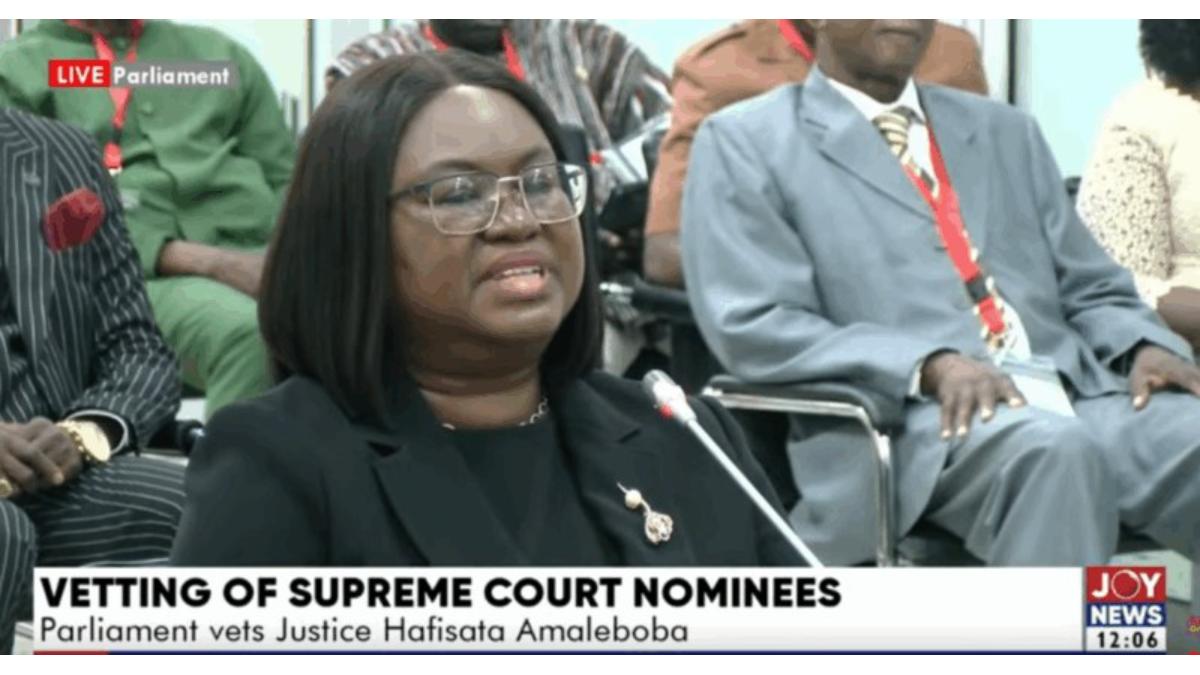Politics
Supreme Court Nominee Awarded ‘Poor’ Man Part of His ‘Rich’ Wife’s Properties in Divorce

Supreme court nominee, Justice Hafisata Amaleboba has revealed she once awarded part of a woman’s properties to a man during divorce proceedings.
Speaking during her ongoing vetting before Parliament’s Appointment Committee, she punched holes in the claim that certain family law provisions favour women more than men.
Amaleboba recounted a case where her ruling favoured a man who had no properties, as his wife was forced to give up part of hers.
“I gave a man part of the woman’s property. The man did not have property, but the woman had property, and the man was entitled to a share of the woman’s property, and that is exactly what I did,” she said.
She added, “The principles apply to all, though they seem to favour women.”
Justice Amaleboba is one of seven judges nominated to the Supreme Court by President John Dramani Mahama.
The seven are undergoing vetting by the Appointments Committee of Parliament in line with constitutional requirements for the approval of nominees to the apex court.
She is facing questions in regard to her legal philosophy, past rulings, and views on the constitution and judicial independence.
Justice Amaleboba, prior to her nomination to the Supreme Court of Ghana, served on the Court of Appeal, a position she held since 2002.
Prior to that, she was a High Court Judge.
Her areas of expertise include family law, land law, and alternative dispute resolutions.
Analysis
Ghanaian society is generally seen as patriarchal, but there is a strong belief among many men that the law courts favour women when it comes to the adjudication of marital issues.
Justice Amaleboba’s attempt here appears targeted at dissolving that feeling, although the efficacy of her argument remains dubious, at best.
Since most publicised cases of divorces see men ‘screwed over’ (Odartey Lamptey, for instance), it will take some highly publicised cases involving some women before people will buy the argument from the Supreme Court nominee.
Source: Liberalprint.com
